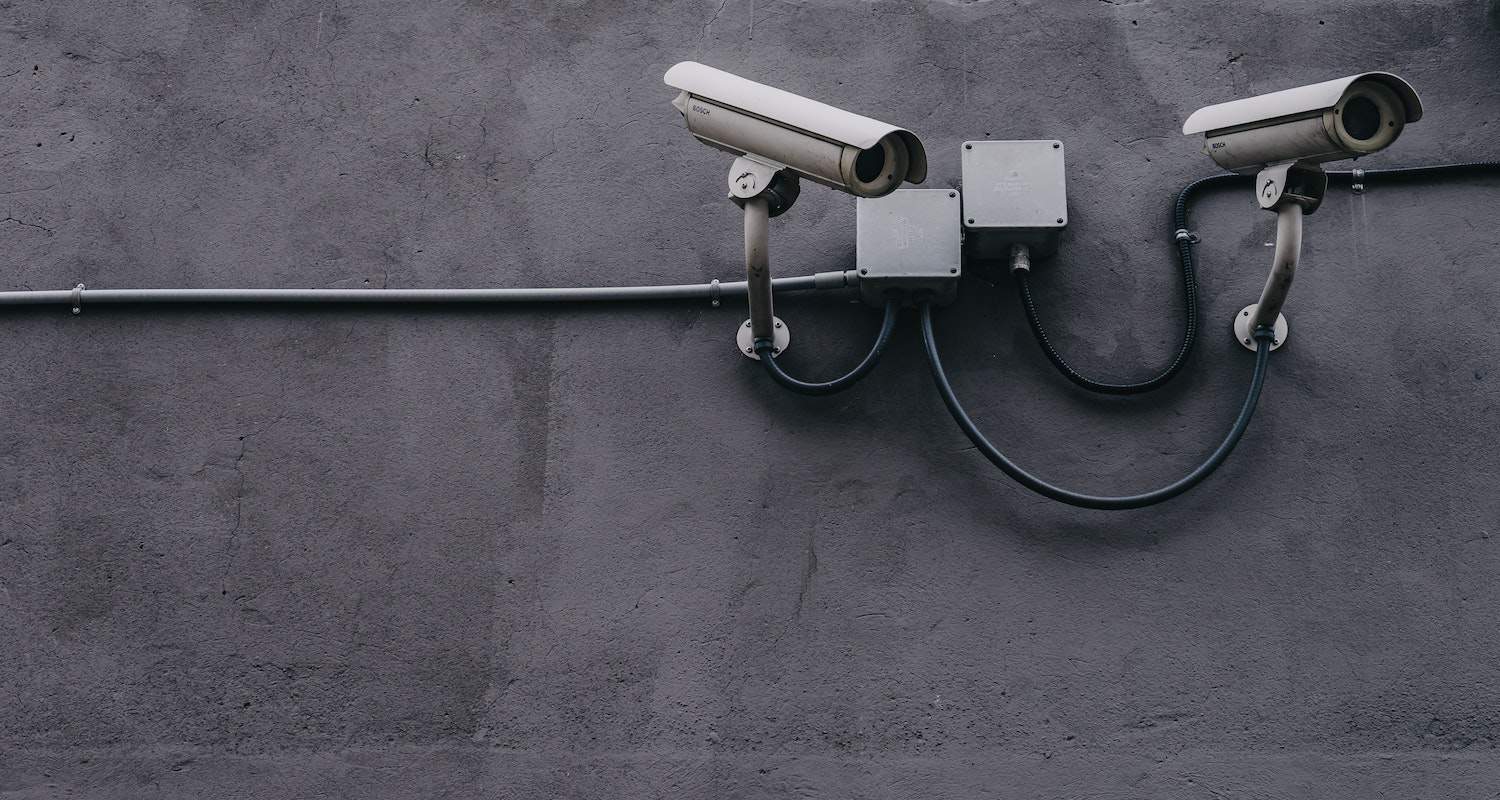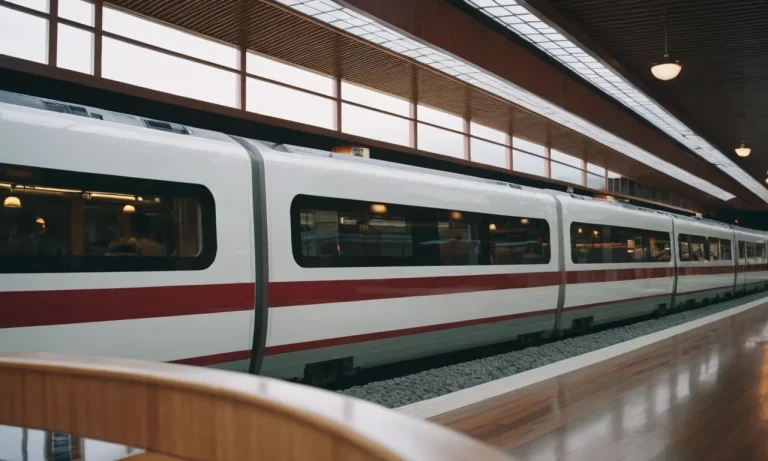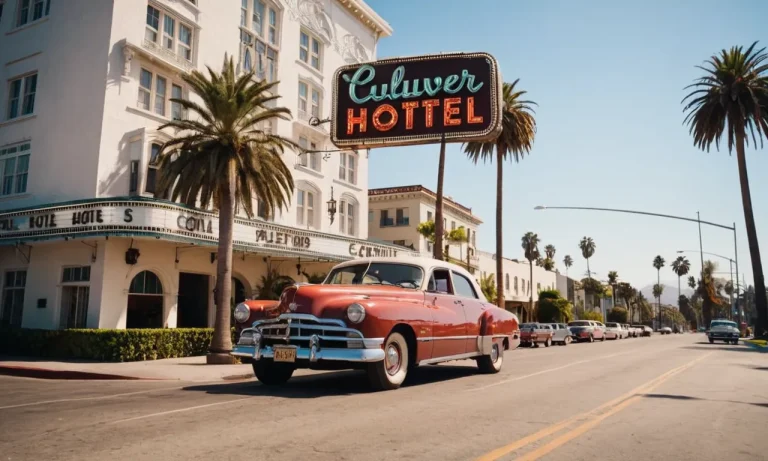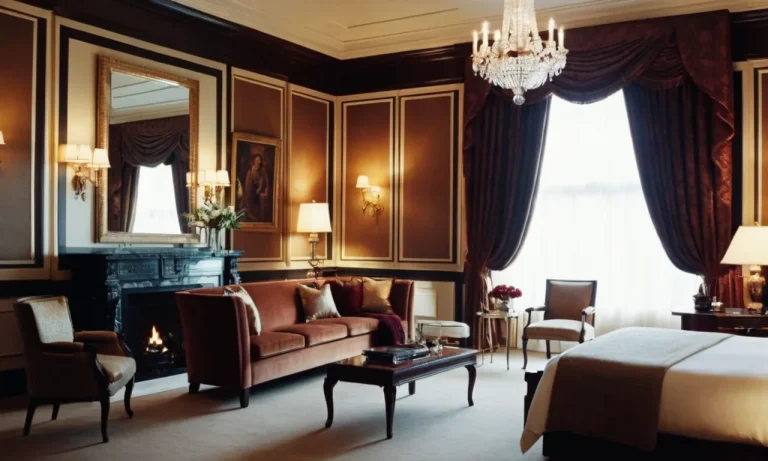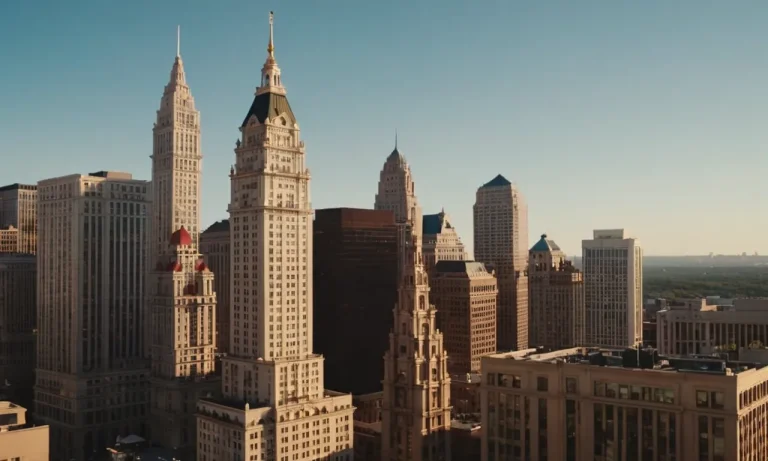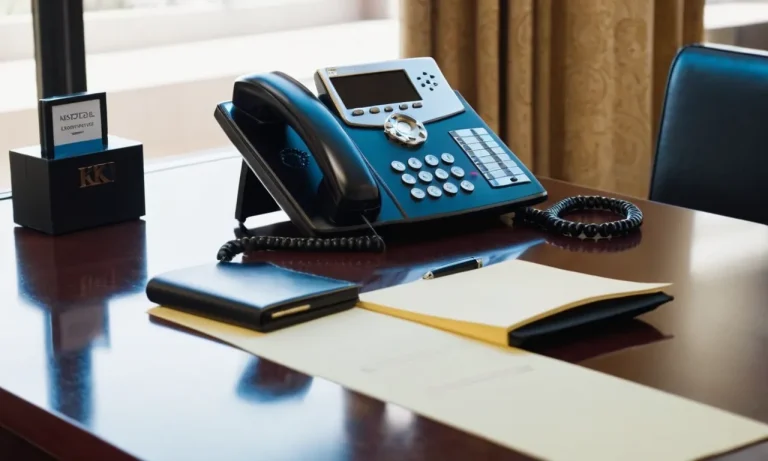How Long Do Hotels Keep Security Footage? A Comprehensive Guide
In today’s world, security is a top priority for businesses, especially in the hospitality industry where the safety of guests and staff is paramount. One of the most effective tools for ensuring safety is the use of security cameras, which capture footage that can be invaluable in investigating incidents or resolving disputes.
However, many people wonder how long hotels keep this security footage and what factors influence their retention policies.
If you’re short on time, here’s a quick answer to your question: Most hotels keep security footage for a period ranging from 30 to 90 days, although this can vary depending on factors such as local laws, company policies, and the storage capacity of their security systems.
In this comprehensive article, we’ll delve into the details of how long hotels keep security footage, the reasons behind their retention policies, and the various factors that can influence these decisions.
We’ll also explore the legal implications, best practices, and the role of technology in managing and storing security footage effectively.
Standard Retention Periods for Hotel Security Footage
Typical Retention Periods
The length of time hotels keep their security footage varies, but most establishments follow a standard retention period of 30 to 90 days. This timeframe is generally considered sufficient to address potential incidents or investigations that may arise within the property.
However, it’s essential to note that retention policies can differ significantly across hotels, regions, and jurisdictions.
According to a survey by Hotel News Resource, approximately 45% of hotels retain their security footage for 30 days, while 30% keep it for 60 days, and 15% retain it for 90 days or longer. The remaining 10% have varying retention periods or no set policy.
These statistics highlight the diversity in practices and the importance of understanding the specific policies of each hotel.
Factors Influencing Retention Periods
Several factors can influence the retention period for hotel security footage, including:
- Legal requirements and industry standards: Certain jurisdictions may have specific laws or regulations dictating the minimum retention period for security footage. Additionally, industry associations or hotel chains may have their own recommended standards.
- Storage capacity and costs: The amount of storage space available and the associated costs can play a role in determining how long footage can be retained. Hotels with limited storage capacity may need to delete older footage more frequently to make room for new recordings.
- Risk assessment and incident rates: Hotels located in areas with higher crime rates or those that have experienced frequent incidents may opt to retain footage for longer periods to aid in investigations or legal proceedings.
- Corporate policies and business practices: Some hotel chains or individual properties may have their own corporate policies or business practices that dictate specific retention periods, often based on their risk management strategies or operational needs.
Legal Requirements and Industry Standards
While there are no federal laws in the United States specifically governing the retention of hotel security footage, some states and local jurisdictions have enacted regulations or guidelines. For example, Denver, Colorado, requires hotels to retain security footage for at least 14 days, while Long Beach, California, mandates a minimum retention period of 30 days.
Industry associations and organizations, such as the American Hotel & Lodging Association (AHLA), also provide guidance and best practices for hotel security and data retention. While not legally binding, these standards can serve as valuable references for hotels seeking to establish or update their policies.
It’s always recommended to consult with legal professionals and stay updated on the latest regulations applicable to your specific location and business operations.
Reasons for Keeping Hotel Security Footage
Guest Safety and Security
One of the primary reasons hotels keep security footage is to ensure the safety and security of their guests. Surveillance cameras can help deter criminal activities and monitor suspicious behavior within the premises.
If an incident does occur, the footage can provide crucial evidence to assist law enforcement investigations. According to a study by the Urban Institute, the presence of CCTV cameras can lead to a 16% reduction in crime rates in certain areas.
Hotels prioritize guest safety, and keeping security footage is a proactive measure to protect their visitors 😊.
Liability Protection
In addition to guest safety, hotels must protect themselves from potential legal liabilities. Security footage can serve as valuable evidence in cases of accidents, disputes, or lawsuits involving guests, employees, or third parties.
For example, if a guest slips and falls on the property, the footage can help determine the circumstances surrounding the incident and establish liability. Similarly, if a guest’s belongings are stolen or damaged, the footage can aid in the investigation and resolution process.
By retaining security footage, hotels can safeguard themselves against unfounded claims and ensure fair treatment for all parties involved.
Incident Investigation and Resolution
When incidents occur within a hotel, security footage plays a crucial role in investigating and resolving them effectively. Whether it’s a theft, altercation, or any other disturbance, the footage can provide a comprehensive view of the events, helping hotel staff and authorities piece together the details and take appropriate action.
Imagine a situation where a guest’s valuable item goes missing 😳 – the security footage could potentially reveal the culprit, leading to a swift resolution and preventing further issues. By keeping security footage, hotels can swiftly address concerns, maintain order, and uphold their reputation for providing a safe and secure environment.
Employee Monitoring and Training
Security footage isn’t just useful for guest-related matters; it also aids in employee monitoring and training. Hotels can review footage to assess employee performance, identify areas for improvement, and ensure adherence to policies and procedures.
For instance, if a guest complains about an employee’s conduct, the footage can provide an objective account of the interaction, allowing for fair evaluation and appropriate action. Furthermore, footage can be used for training purposes, highlighting exemplary customer service scenarios or addressing potential areas of concern.
By leveraging security footage, hotels can foster a culture of accountability, continuous improvement, and exceptional service delivery 👏.
Legal Considerations and Privacy Concerns
When it comes to hotel security footage, there are several legal and privacy concerns that come into play. Hotels must strike a delicate balance between ensuring the safety and security of their guests and staff while also protecting their privacy rights.
Here’s a closer look at some of the key legal considerations and privacy concerns:
Data Protection Laws and Regulations
Most countries have data protection laws and regulations in place that govern the collection, storage, and use of personal data, including video footage. In the United States, the Federal Trade Commission (FTC) enforces laws related to consumer privacy and data security.
The European Union has the General Data Protection Regulation (GDPR), which sets strict rules for how companies must handle personal data.
According to a study by Comparitech, only 35% of hotels disclose their video surveillance policies on their websites. This lack of transparency can raise concerns about how hotels are handling sensitive data like security footage.
Guest Privacy Rights
Guests have a reasonable expectation of privacy when staying at a hotel. While security cameras may be present in public areas like lobbies and hallways, guests generally expect their private rooms to be off-limits to surveillance.
Hotels must carefully consider where they place security cameras and ensure that they do not infringe on guests’ privacy rights.
According to a survey by Statista, 63% of respondents cited privacy as one of the most important hotel amenities. This highlights the importance of hotels respecting guests’ privacy and being transparent about their security practices.
Handling Requests for Footage Access
Hotels may receive requests for access to security footage from law enforcement agencies, guests, or other parties. They must have clear policies and procedures in place for handling these requests while also protecting the privacy of other individuals captured in the footage.
According to a survey by HospitalityNet, 58% of hotels reported receiving requests for security footage from law enforcement in the past year. Hotels must carefully review these requests and ensure they have a legal basis for providing the footage.
Additionally, hotels should have protocols in place for redacting or blurring footage to protect the privacy of individuals not involved in the incident in question. They should also keep detailed logs of who has accessed the footage and for what purpose to maintain transparency and accountability.
Best Practices for Managing Hotel Security Footage
In today’s world, security is a top priority for hotels, and one crucial aspect of maintaining a safe environment is the proper management of security footage. By following best practices, hotels can not only protect their guests and staff but also safeguard their assets and reputation.
Let’s delve into the key areas that ensure effective handling of security footage.
Storage and Backup Solutions
Robust storage solutions are essential for preserving valuable security footage. Hotels should invest in high-capacity, redundant storage systems that can accommodate large volumes of video data. Cloud-based storage services, such as those offered by Google Cloud Storage or Amazon Web Services, provide scalable and secure options for storing and accessing footage remotely.
Additionally, regular backups to offsite locations or cloud storage should be implemented to mitigate the risk of data loss due to hardware failure or natural disasters. According to a study by the International Data Corporation (IDC), nearly 60% of organizations experience data loss due to inadequate backup and recovery strategies.
Access Controls and Security Measures
Ensuring the integrity and confidentiality of security footage is paramount. Hotels should implement robust access controls, such as role-based permissions and multi-factor authentication, to prevent unauthorized access or tampering.
Encryption techniques should also be employed to protect the data both in transit and at rest. Furthermore, physical security measures, like secure server rooms and surveillance camera monitoring, can further safeguard sensitive footage.
The Hotel Security Solutions website provides comprehensive guidelines on enhancing physical security measures in hotels.
Retention Policy Development and Implementation
Establishing a clear and well-defined retention policy is crucial for hotels to comply with legal requirements and industry best practices. The retention period for security footage may vary depending on local laws and regulations, as well as the hotel’s specific needs.
Generally, it is recommended to retain footage for a minimum of 30 days, but some jurisdictions may require longer retention periods. Hotels should consult with legal experts and industry associations, such as the American Hotel & Lodging Association (AHLA), to develop and implement a comprehensive retention policy that aligns with relevant laws and guidelines.
Training and Awareness for Staff
Effective management of security footage relies heavily on the knowledge and diligence of hotel staff. Regular training sessions should be conducted to educate employees on the proper handling of security footage, including:
- Procedures for accessing, viewing, and sharing footage
- Protocols for reporting incidents or suspicious activities
- Best practices for maintaining the confidentiality and integrity of footage
- Awareness of the hotel’s retention policy and legal obligations
Additionally, hotels should foster a culture of security awareness, encouraging staff to remain vigilant and report any potential security concerns promptly. According to a survey by the Hospitality Technology Next Generation (HTNG), hotels that prioritize staff training and awareness experience a 25% reduction in security incidents.
By implementing these best practices, hotels can effectively manage their security footage, enhancing guest and staff safety, protecting valuable assets, and maintaining a positive reputation in the industry.
Remember, security is an ongoing process, and staying up-to-date with the latest technologies, regulations, and industry standards is crucial for ensuring the continued success of your hotel’s security measures.
The Role of Technology in Hotel Security Footage Management
In today’s digital age, technology plays a pivotal role in enhancing hotel security and ensuring the safety of guests and staff alike. One crucial aspect of this is the management of security footage, which has undergone a remarkable transformation thanks to advancements in various technologies.
From cloud-based storage solutions to intelligent video analytics, the hospitality industry is leveraging cutting-edge tools to streamline processes and improve overall security.
Cloud-based Storage Solutions
Traditional on-premise storage systems for security footage can be costly, resource-intensive, and prone to data loss or corruption. Cloud-based storage solutions, such as those offered by Amazon Web Services and Google Cloud Storage, have emerged as a game-changer in this regard.
These solutions offer scalable, secure, and cost-effective storage options, allowing hotels to store vast amounts of video footage without the need for extensive on-site infrastructure. According to a recent study by MarketsandMarkets, the global cloud-based video surveillance market is projected to reach $5.4 billion by 2027, with the hospitality industry being a significant contributor.
Intelligent Video Analytics
Beyond mere storage, modern security systems leverage intelligent video analytics to extract valuable insights from security footage. These advanced algorithms can detect suspicious behavior, facial recognition, license plate recognition, and even track objects or individuals across multiple cameras.
Companies like Avigilon and Axis Communications offer powerful video analytics solutions tailored for the hospitality industry. By automating the analysis process, hotels can proactively identify potential threats and respond swiftly to incidents, enhancing overall safety and security.
Integration with Other Security Systems
Effective security management requires a holistic approach, where various systems work in tandem to provide a comprehensive solution. Modern security platforms allow seamless integration of video surveillance with access control systems, intrusion detection systems, and even guest management software.
This integration enables hotels to correlate events from multiple sources, providing a unified view of security operations. For instance, Genetec, a leading security solutions provider, offers an integrated platform that combines video surveillance, access control, and license plate recognition, empowering hotels to streamline their security operations.
Future Trends and Advancements
As technology continues to evolve, the future of hotel security footage management holds exciting possibilities. Advancements in areas such as artificial intelligence (AI) and machine learning (ML) will further enhance video analytics capabilities, enabling more accurate and real-time threat detection.
Additionally, the integration of security systems with the Internet of Things (IoT) devices and sensors will provide a comprehensive view of hotel operations, allowing for proactive security measures.
Companies like Hikvision are already exploring the use of AI and deep learning algorithms to improve video analytics and security management solutions for the hospitality industry.
Conclusion
Determining how long hotels keep security footage is a complex issue that involves balancing various factors, including guest safety, legal requirements, privacy concerns, and practical considerations such as storage capacity and cost.
While most hotels follow a standard retention period of 30 to 90 days, the specific duration can vary based on local laws, company policies, and the nature of the incidents captured.
As technology continues to evolve, hotels are increasingly adopting advanced solutions for managing and storing security footage, such as cloud-based storage, intelligent video analytics, and integration with other security systems.
These advancements not only enhance the efficiency and effectiveness of footage management but also provide additional layers of security and privacy protection.
Ultimately, hotels must strike a balance between maintaining a secure environment for guests and staff while respecting individual privacy rights and complying with relevant laws and regulations. By implementing best practices, developing comprehensive retention policies, and leveraging the latest technologies, hotels can effectively manage their security footage and ensure it serves its intended purpose of enhancing safety and resolving incidents when necessary.

